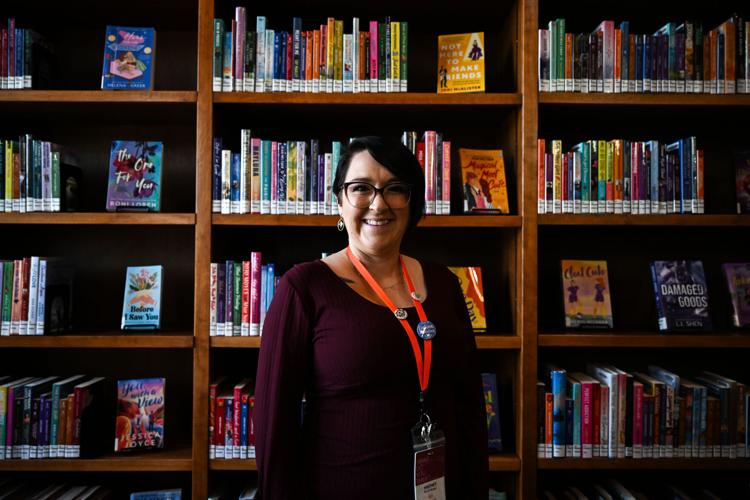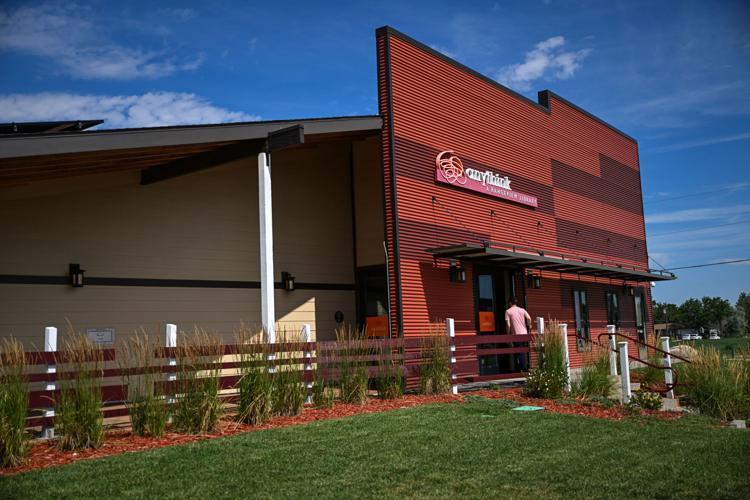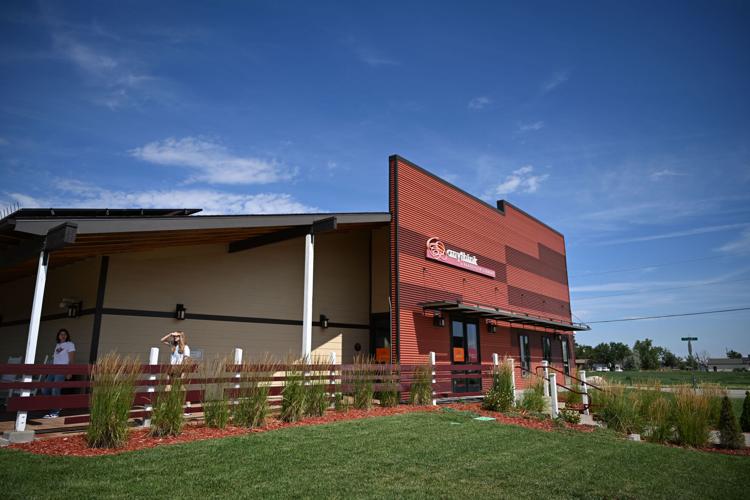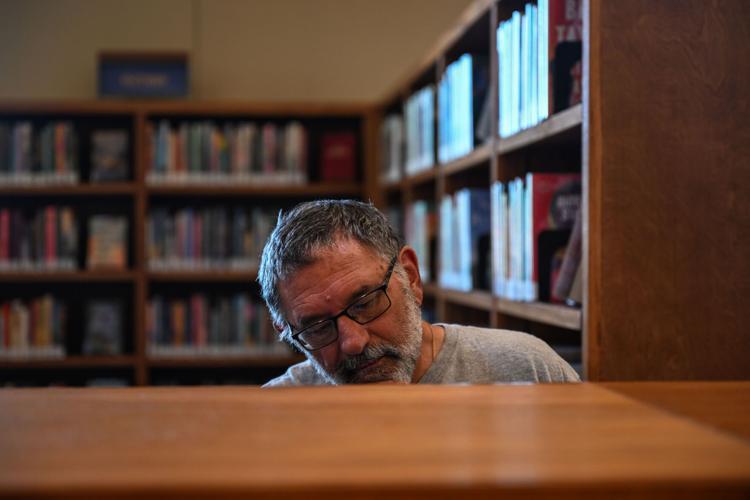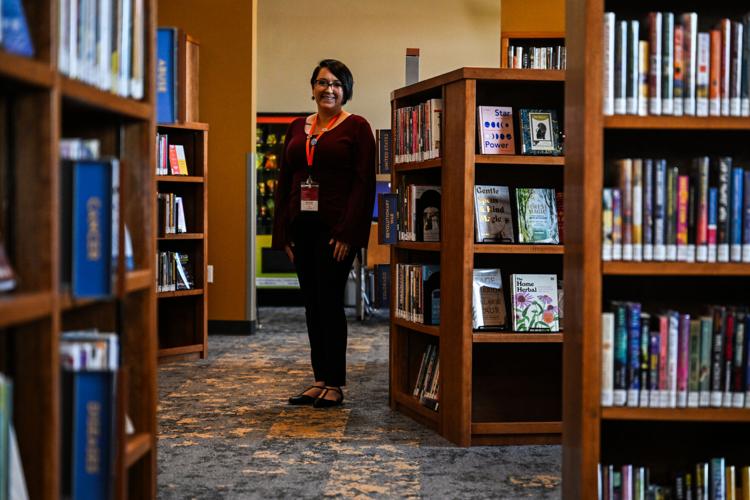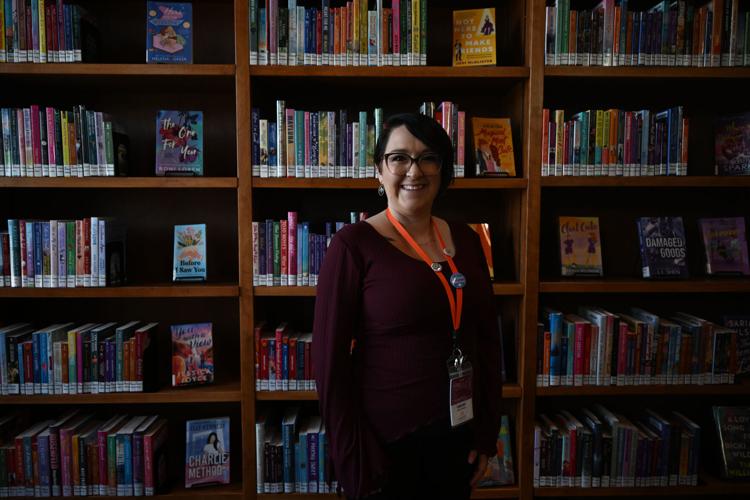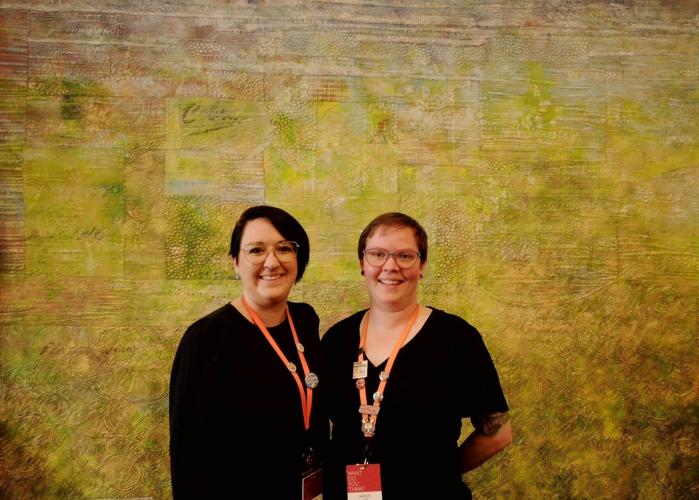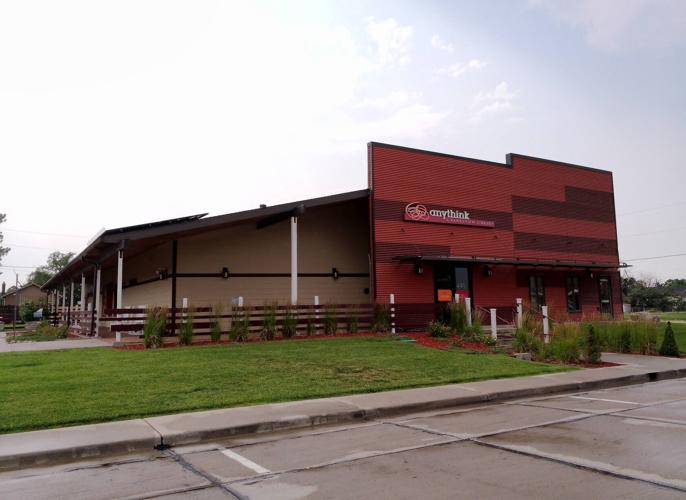Eastern Plains library is a beacon for behavioral health services
In the town of Bennett, 30 miles east of Denver on the plains, mental health support can be hard to come by. There’s no local full-service medical center. No equivalent human services center. And for residents without reliable transportation, driving long distances to the nearest provider isn’t always an option.
But there is a library.
At Anythink Bennett, a small red building just off the town’s main street, staff quietly fill gaps left by the behavioral health system. For many families facing hardship, the library may be their first or only steady source of support.
In collaboration with Adams County Public Health, Anythink Bennett helps families apply for benefits, access food and diaper drives, and connect with early childhood intervention programs.
“Many can’t make the trip to Westminster, where services are located,” said Whitney Oakley, Anythink Bennett branch manager, who is also the mayor of Bennett. “So we help them navigate applications, online portals, and connect them with the help they need.”
But families’ challenges go beyond paperwork. Many arrive juggling caregiving, financial stress, medical confusion, and sometimes no internet at home. This is when the library’s deeper role comes into focus.
“People just want somebody to talk to,” Oakley said. “We might start by helping with tech or access, but often we’re providing emotional support. Sometimes, that is the most important thing we can offer.”
Young people in the area also face their own set of struggles in this town of 3,500.
“Teens, especially in rural and small communities, may not always have the most stable or healthy home environments,” Oakley said. “At the library, we get to model what it means to be safe, healthy adults. We’re a place where they can learn social skills, be heard, and just have someone to listen.”
Library staff provide suicide hotline numbers, help with programs like Job Corps, a youth employment and education program, and ensure teens know they can come in a time of crisis and get the help they need.
That’s critical in a town with some of the lowest access to behavioral health care in the county. According to Adams County’s 2023 Behavioral Healthcare Shortage Areas map, Bennett residents aged 15-and-older had fewer than one provider encounter per person.
“These kids don’t have a lot of places to go,” said youth services librarian Molly DeWolff. “Everything is far. They can’t just hop in a car and drive into town.”
Natalee Salcedo, community and behavioral health manager at the Adams County Health Department, put it plainly: “Rural Adams County certainly experiences limited to no providers. Most mental health and substance use facilities are within 30 minutes, which does not mean access.”
Given these barriers, a countywide assessment conducted three years ago found that services should meet people where they already spend their time. Salcedo said the assessment identified Bennett’s library as a vital “third space” for youth, alongside home and school, where they feel safe and supported.
The trusted environment at Anythink Bennett allows teens not only to receive support but also to have a direct voice in shaping the library’s programs and resources. Through the Teen Advisory Board (TAB) — open to youth ages 12-to-17, teens help decide which programs to offer, what books to add, and how the library can better serve their peers. The library also works with Adams County Public Health’s Teens for Change youth leadership group.
“It’s my favorite part of the job,” DeWolff said. “We talk about what they want on the shelves or fun after-hours programs, but mostly, they just want to hang out and make friends. Social connection is its own form of mental health support.
“I’ve had many kids reach out even on my days off because they need to talk to an adult they trust, sometimes about things they can’t or won’t share with their parents. The real success for me is when kids return and share more of their story, knowing it will be heard and cared for.”
TAB meetings also provide a space where teens can openly discuss what they’re experiencing at school, from substance use to mental health struggles, and explore how the library can help.
“Some of the most powerful moments come when we see teens return, having been successful,” Oakley said. “They share successes like getting a promotion at work. Two years prior, some struggled with substance use; now they are thriving as adults.”
But the emotional baggage those discussions create can be heavy.
“Compassion fatigue is real,” DeWolff said. “We’re not their parents. We can’t make them feel okay all the time. So we let them go and hope everything’s going to be OK. That can be really hard, especially when it happens over and over.”
That’s why extra support is necessary.
“Self-care equals community care,” DeWolff said. “When you feel supported by the rest of your staff and administration, it doesn’t feel so heavy. It’s a team effort.”
And that effort can provide gratifying results.
“One memorable moment was when a young person and I applied for 18 jobs together,” Oakley said. “They later came back with a basket of cookies and said, ‘I couldn’t have done it without you.’ That kind of gratitude is not why we do this, but it shows why the work matters. At Anythink, we empower people to be independent and want them to leave feeling smarter and more capable. That feeling of ‘I can do this’ is the goal.”
While not a substitute for clinical care, Anythink Bennett plays a vital and often overlooked role in supporting community mental health. In a town with limited options, the library offers what formal systems often cannot: stigma-free, privacy-protected support in an everyday space. Staff emphasize that they aren’t trained clinicians. Libraries can be a bridge, a buffer, even a lifeline, but they can’t stand in for a fully funded behavioral health system.
Salcedo and others argue that community resilience depends on coordinated investment in behavioral health infrastructure. Libraries like Anythink Bennett, she noted, add immense value by providing inclusive, trusted spaces that reduce stigma and foster connection. Still, even deeply rooted community hubs like libraries are working with stretched resources. Broader collaboration is essential.
“We need to think beyond silos and funding,” Salcedo said, “and focus on our role in public health by bringing together folks across sectors: law enforcement, public safety, education, social services, behavioral health, and more. We can’t solve these problems alone.”





